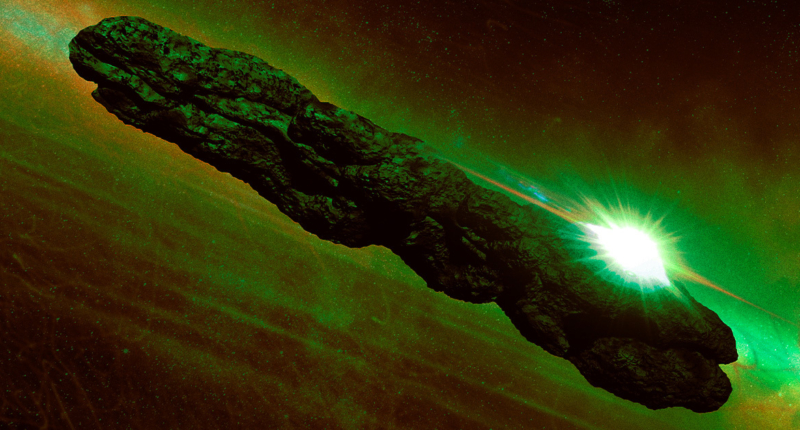Harvard astronomer Avi Loeb has rejected the latest research by Cornell and Berkeley scientists, who suggested that the interstellar object Oumuamua was a gas-propelled comet. Loeb criticized the idea, saying that it was like “saying an elephant is a zebra without stripes.” However, the gas-propelled comet theory has garnered support from other astronomers as a plausible explanation for Oumuamua’s unusual behavior and shape. The study suggests that Oumuamua was a comet that had a faint tail, which was not visible to the naked eye. The object’s unusual shape could be attributed to its gas-propelled nature, and it was propelled by hydrogen gas that came from a potentially icy core, making it a planetesimal relic similar to solar system comets. The theory provides further support for the idea that Oumuamua originated as a planetesimal relic similar to solar system comets. Despite some astronomers’ support for this theory, Loeb remains unconvinced.
Scientists Debunk Alien Theory About Oumuamua, Claiming It’s Just a Gas-Propelled Comet
In 2017, the world was intrigued by a strange interstellar object named Oumuamua, which flew past Earth. Some astronomers speculated that it could be an alien spacecraft. However, a new study by Cornell and Berkeley researchers published in the journal Nature provides a new and less fantastical explanation.
The scientists suggested that Oumuamua, which is 400 feet long and was first detected by astronomers in Hawaii, was actually a gas-propelled comet. According to the researchers, the comet had a faint tail, which is why it was not visible to the naked eye. This explanation, although not as exciting as the possibility of aliens, offers a more plausible reason for the object’s behavior.
One of the most puzzling aspects of Oumuamua was its lack of a tail, which led some to conclude that it was an asteroid. However, this gas comet theory suggests that the tail was simply too faint to be seen. Additionally, the object’s unusual shape could be attributed to its gas-propelled nature.
The theory was proposed by Jennifer Bergner, an astrochemist at the University of California, Berkeley, and defended by Cornell postdoctoral astronomy researcher Darryl Z. Seligman. They claimed that Oumuamua was propelled by hydrogen gas that came from a potentially icy core, making it a planetesimal relic similar to solar system comets. This idea was lauded by Seligman as the most generic explanation for interstellar comets.
While this gas-propelled comet theory offers a less exciting explanation than aliens, it has garnered support from some astronomers. They argue that this theory provides further support for the idea that Oumuamua originated as a planetesimal relic similar to solar system comets.
However, there are still those, like Harvard astronomer and alien hunter Avi Loeb, who remain unconvinced. Regardless, this new theory may help solve the mystery of Oumuamua’s unusual behavior and shape.
Harvard astronomer Avi Loeb, known for his outlandish theories on the origins of interstellar object Oumuamua, has dismissed the latest research by Cornell and Berkeley scientists suggesting it was a gas-propelled comet. In an email to the New York Times, Loeb criticized the idea, stating that it was like “saying an elephant is a zebra without stripes.” Despite Loeb’s dismissal, the gas-propelled comet theory has garnered support from other astronomers as a plausible explanation for Oumuamua’s unusual behavior and shape.
Don’t miss interesting posts on Famousbio
